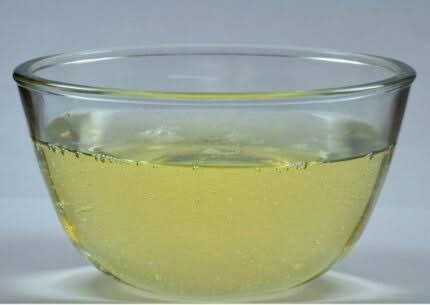D-panthenol at Best prices
Key Features
-
The moisturizing property of D-Panthenol improves the elasticity of your strands, thus preventing breakage and makes your hair look healthy and vibrant.
-
It forms a thin protective layer on the surface of your strands, thereby making it look shiny and radiant
-
It acts as an excellent humectant due to which D-Panthenol is known to make your hair soft and silky.
-
It adds strength to your strands by boosting the elasticity of your hair and preventing the breakage, hair fall.
-
It also protects your strands from pollution and other environmental aggressors.
Product Description
In topical cosmetics, product manufacturers often use panthenol as a moisturizer. But it’s also included in many cosmetics as a softening, soothing, and anti-irritant agent. It also helps your skin build up a barrier against irritation and water loss. Skin products Vitamin B-5 is essential for a healthy diet, skin, and hair. It makes sense that panthenol, its derivative, is a staple of many skin care products, such as lotions and cleansers. It’s also found in cosmetics as various as lipstick, foundation, or even mascara. Panthenol also appears in creams made to treat insect bites, poison ivy, and even diaper rash. The National Center for Biotechnology Information lists panthenol as a skin protectant with anti-inflammatory properties. It can help improve skin’s hydration, elasticity, and smooth appearance. It also soothes: red skin inflammation little cuts or sores like bug bites or shaving irritation Panthenol helps with wound healing, as well as other skin irritations like eczema. Hair products Hair care products include panthenol because of its ability to improve your hair’s: shine softness strength It can also help protect your hair from styling or environmental damage by locking in moisture. One studyTrusted Source found that panthenol may help slow down and hide the look of thinning hair. The study tested it with other active ingredients as a leave-in treatment. Nail products Your nails are made from keratin proteins, just like your hair. So, it follows that panthenol can strengthen your finger- and toenails. You might find it in your shine and strengthening nail treatments, or in hand creams and cuticle oils. One studyTrusted Source found that applying panthenol to the nail can help hydrate the nail and prevent breakage. Is panthenol safe? Both the U.S. Food and Drug Administration (FDA) and the European Commission on Cosmetic Ingredients have approved panthenol for use in cosmetics. The National Institutes of Health (NIH) classifies panthenol as “possibly safe” for general topical applications and nasal sprays. And it’s listed as “likely safe” for topical use by children. The FDA currently lists panthenol in its widely known “Generally Regarded as Safe” database for when it’s ingested as a food ingredient, or as a supplement. But remember that ingesting panthenol or panothenic acid in food or as a supplement is very different than using it on your skin or hair. Although it’s widely considered beneficial as a supplement, it’s only classified as “likely safe” for topical use on the skin, hair, and nails. That means there’s no significant evidence that panthenol causes harm, and plenty of anecdotal evidence that it’s helpful for many skin concerns. But there isn’t enough evidence to be sure, so the FDA suggests that more research is needed. The Cosmetic Ingredient Review (CIR), another reputable organization that protects consumers, assembled a panel of experts in 2017 to assess panthenol’s topical safety in light of recent research. This review board found no significant evidence that cosmetic products containing panthenol irritate or otherwise harm the skin, except in case of allergy. Bad reactions to topical panthenol are extremely rare. But when side effects do occur, they usually take the form of contact dermatitis or gastrointestinal distress. It’s still important to remember that, from the perspective of the FDA, there isn’t sufficient evidence to officially give panthenol a “safe” designation. But the CIR notes that the amount of panthenol in cosmetics shouldn’t pose harm when absorbed into the body, since much higher levels of vitamin B-5 already occur in our food. So, there’s no significant evidence that topical panthenol will cause systemic problems.

